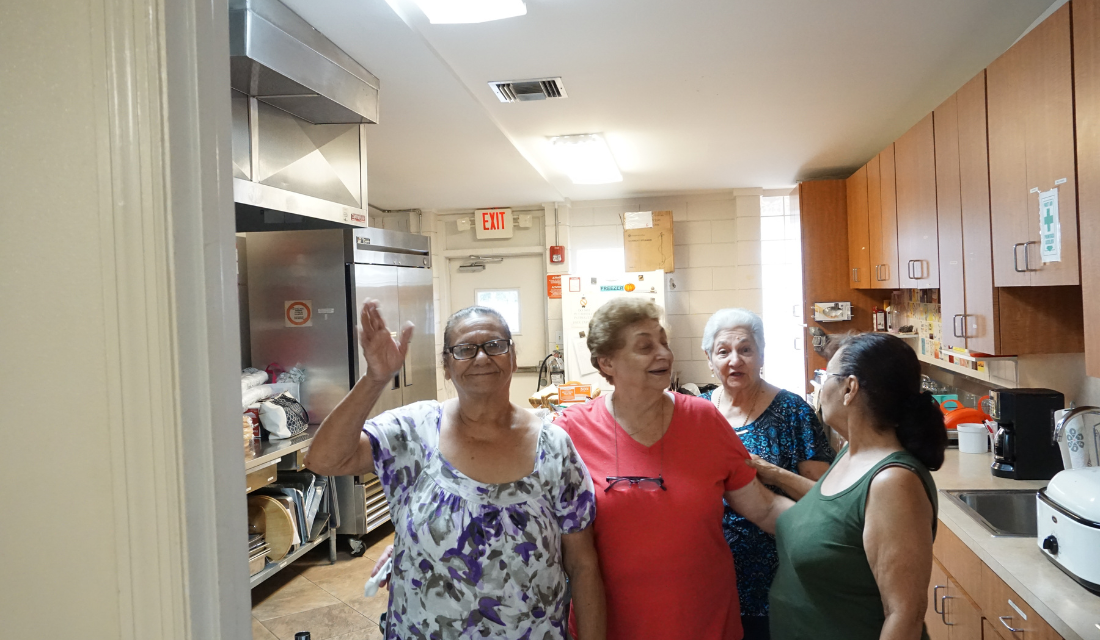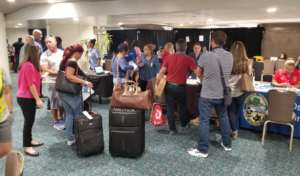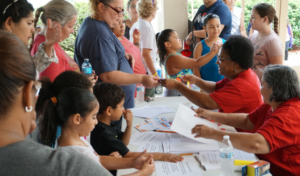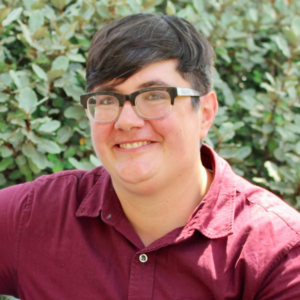Imagining a More Just World – Disaster Response in an Age of Climate Change

By Katie Mears, Senior Technical Specialist, US Disaster and Climate Risk
I’ve been doing disaster work for almost 20 years, first as a volunteer, then on staff working for the Episcopal Diocese of Louisiana after Hurricane Katrina, and now at Episcopal Relief & Development. I’ve worked with partners on disasters of all types and scales in that time, most recently the devastating Hurricane Helene and it’s hard to ignore the increasing frequency and intensity, even in just the last 20 years.
I used to think of climate change as something that would happen in the future if we didn’t build more solar farms, end our dependence on fossil fuels and change to LED lightbulbs, but what has really become clear to me is that the future is already here. Our car windshields can’t even keep up with today’s rain and you can get a second or third degree burn from falling on the sidewalk. The world has already changed.
As the climate continues to change over the next 50 years, hundreds of millions of people worldwide will need to move because of unlivable heat conditions, frequent flooding and catastrophic storms in search of housing, work and community, likely more than 13 million just within the US borders. It is predicted that those who move first will be younger people and those with more money, leaving behind people with fewer resources. Those left behind will likely not have the means to relocate and likely won’t have a support system to help them as they begin a new life in a new place. That is, without intervention.

The combination of what we are already witnessing—the rising heat-related deaths, repeated floods, stronger storms—and future predictions demands imagination about what role Episcopal Relief & Development and people of faith can play in shaping a more just future. Many of us have a sense of the negative—we have seen enough climate movies or read enough science fiction—but we haven’t yet looked for where we can find justice within the limitations of the dramatically changed world we know we will face. We have a sense of the challenges we face, but now is the time to imagine what the best version of the future might be, so we can work toward that.
As we imagine a more just climate-changed world, Episcopal Relief & Development is shifting its US Disaster strategy to focus on the intersection of climate adaptation disaster response. The new strategy will work to harness the power that our faith partners have in the lives of people and communities, to support people as they make choices about their own futures.
Under our new strategy, Episcopal Relief & Development will prioritize people and help them adapt to the changing climate. This means we will continue to help meet families’ immediate and long-term needs after disasters, doing so where the people are, not where the disaster has occurred. We will also work to ensure people living in places highly vulnerable to the changing climate can imagine their futures by offering support as they plan, adapt, relocate and protect their assets before and after an event.
Episcopal Relief & Development, working together with faith institutions and other community partners, has an opportunity to build on what a lot of great minds in our pews and our neighborhoods have already been doing in regards to helping the people we serve adapt and respond to the coming changes. One example was our response to Hurricane Maria in 2017 in partnership with the Episcopal Diocese of Central Florida. After Hurricane Maria hit Puerto Rico, about 10% of the population left the island, especially those with complicated medical needs, unable to get by in the challenging environment post-storm. The Rev. José Rodriguez, a priest within the diocese, created a volunteer program that brought together older women, who called themselves abuelitas, from his parish to provide pastoral and physical support to displaced islanders staying in hotels around the Orlando area. This example embodies the focus on people–not place–in the strategy. Moving forward, we will work with disaster survivors to ensure that they can recover from the disaster as they see fit, where they see fit.

Under the new strategy, here’s what I imagine: people will be supported on their journeys to a new place in the aftermath of a destructive disaster. The people trying to move will have people available to help them along their way—people to help them decide which towns best meet their dreams, needs and resources. There will be programs available to them if they need resources for their journeys—planning, support or finances or all of the above. People in the destination communities will be there to welcome them, helping them find housing, access the services they need, enroll their kids in schools, find new doctors, find a job, join a faith community or sports club or band, and build a community.
Of course, imagination itself can often be a privilege. It takes resources and time and knowledge to dream up and then plan and execute something new. However, I believe that it’s important to use privilege–like that of Episcopal Relief & Development and faith institutions–to level the playing field, to open up the possibilities. Episcopal Relief & Development is striving to be at the forefront of helping people who wouldn’t otherwise have a voice in their recovery have a chance to imagine and choose the futures they want for themselves and their families.
Big changes are coming, and it’s up to us to imagine the best possible future for all of us.
 |
Katie Mears is the Senior Technical Specialist, US Disaster and Climate Risk at Episcopal Relief & Development. |


